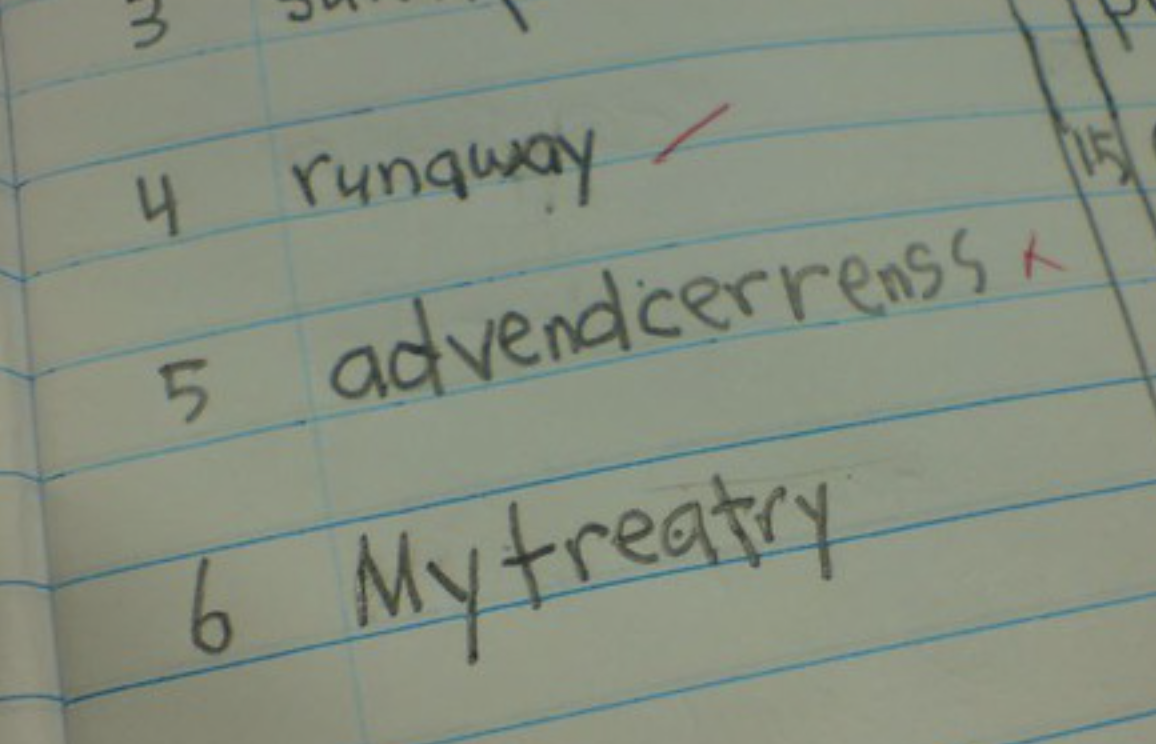Extra Credit is a weekly column serving up a fresh helping of news and updates from the education world. Want more? Sign up for SmartBrief’s free education newsletters.
Is spelling really that important? Y-E-S! Neuroscience and cognitive psychology researchers have noted that spelling is “an essential component of the brain’s reading architecture” that requires all-important deeper processing. It can improve reading proficiency and comprehension in all students — including those at risk, according to a new Danish study. (Someone please forward this to my grown sons. Mom’s not just a word geek; she was right!)

Will the sex-ed battle ever end? Sex education was introduced in high schools in the 1920s, but pros and cons were discussed long before that and continue today. Many states that want to ban abortion don’t offer any sex ed in schools; other places offer online access. Now sexual orientation and gender identity are in the mix. It’s easier to make a hot potato than a decision.
Could the Supreme Court be an ongoing lesson for today’s students? The US Supreme Court’s final decision on a Mississippi abortion case that could overturn Roe v. Wade could come today, later this month or sometime in June. A vote in the Senate to codify the right to abortion did not pass. But students can learn a lot more about the Supreme Court than human reproductive rights. The justices may have more education-related decisions to make. They have pigs to consider too. SmartBrief partner the National Association for the Social Studies has rounded up a host of learning resources about the US Constitution and Supreme Court, as have the National Constitution Center, the Supreme Court Historical Society and Landmark Cases of the U.S. Supreme Court and the National History Education Clearinghouse.
Is a fraternity by any other name still a fraternity? Hazing, alcohol abuse and despicable behavior have given university fraternities a bad name, but — especially on a campus with tens of thousands of students — small, organized groups of people socializing and networking can be college-year lifelines, and create lifelong connections, for many students. Marching bands, student newspapers, gardening groups, interest/ethnic groups and clubs of all kinds can fill the bill.
Why don’t schools display larger-than-life posters of their arts and academic student successes the way the athletic departments do? The athletes get all the love at schools, but the brilliance of off-the-field students deserves as much glory. Read about: savvy STEM students, 161 Presidential Scholars, small-town national art award winners, math whizzes and Poetry Out Loud finalists. Or learn about a college senior’s software for state literacy programs or a graduate student’s Alexa skill to aid dyslexia professional development.
A few more tidbits:
N.C. takes a deep dive into 25 years of charter school education. (EducationNC)
Historical letters that have “shaped our world.” (Library of Congress Magazine and blog)
Calif. woman opens free teacher-supply store in her garage. (Monterey County Weekly)
Climate change, race didn’t make the cut for some reviewers of Fla. math textbooks. (Tampa Bay Times)
Diane Benson Harrington is an education writer at SmartBrief. Reach out to her via email, Twitter or LinkedIn.
________________________________
If you liked this article, sign up for SmartBrief’s free email newsletter from ASCD. It’s among SmartBrief’s more than 250 industry-focused newsletters.
More from SmartBrief Education:
- 5 ways new school-home communication meets family, staff needs
- 5 virtual-classroom tools to foster authentic connections
- Changing the classroom experience with instructional audio
- Powerful social media solutions for students
- How comics curriculum boosts SEL
- 8 ways to make vocabulary instruction more effective
